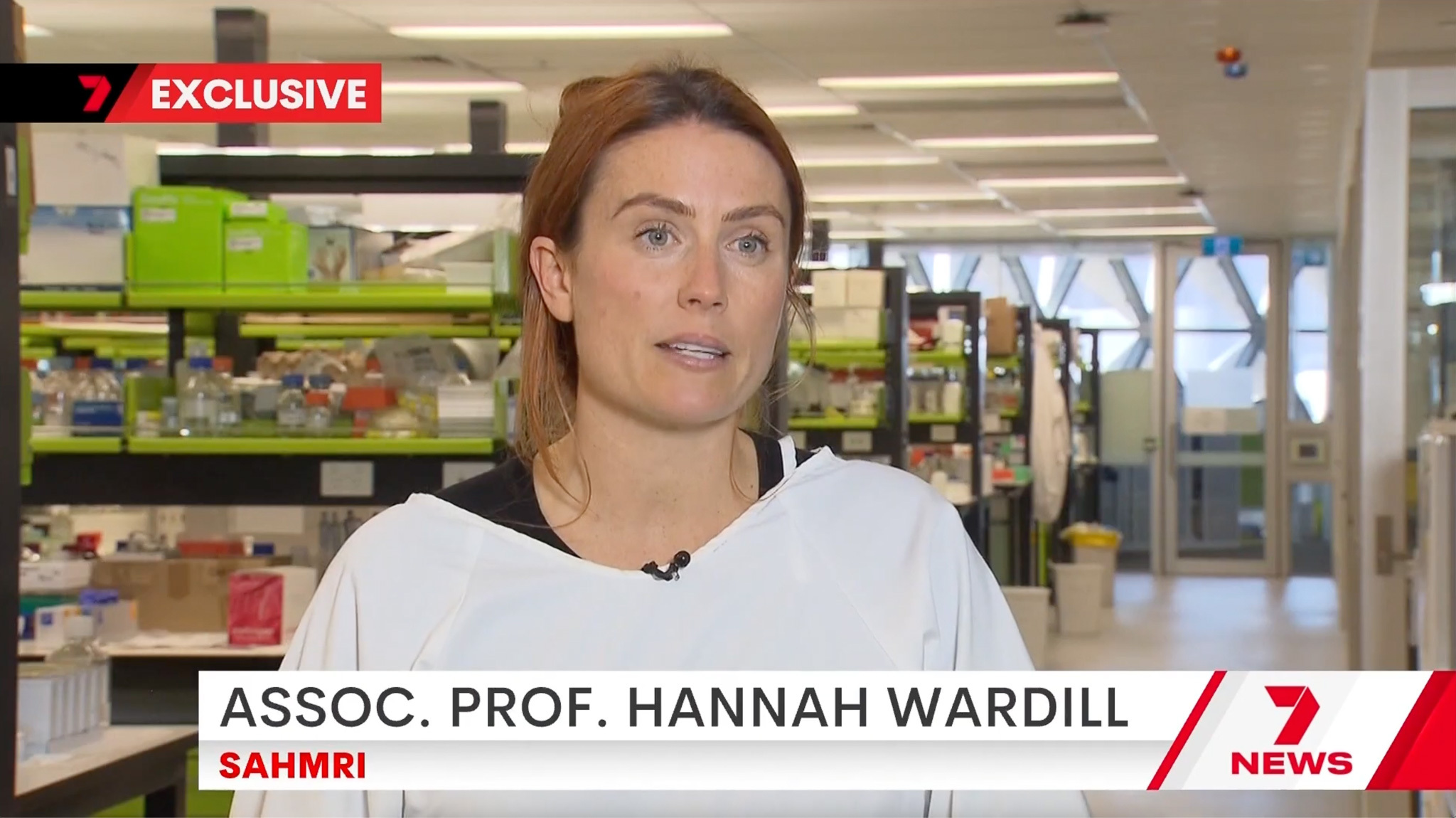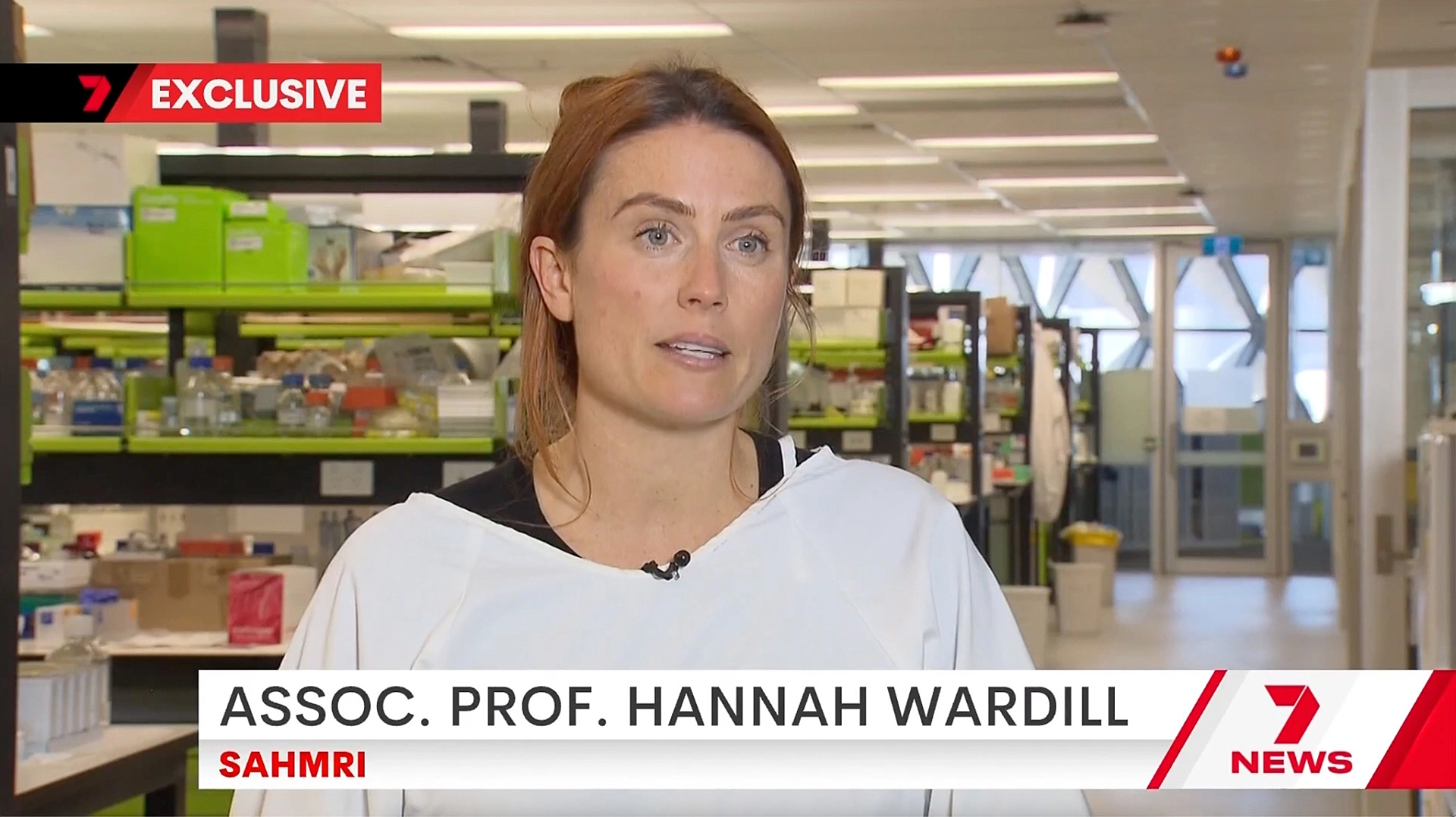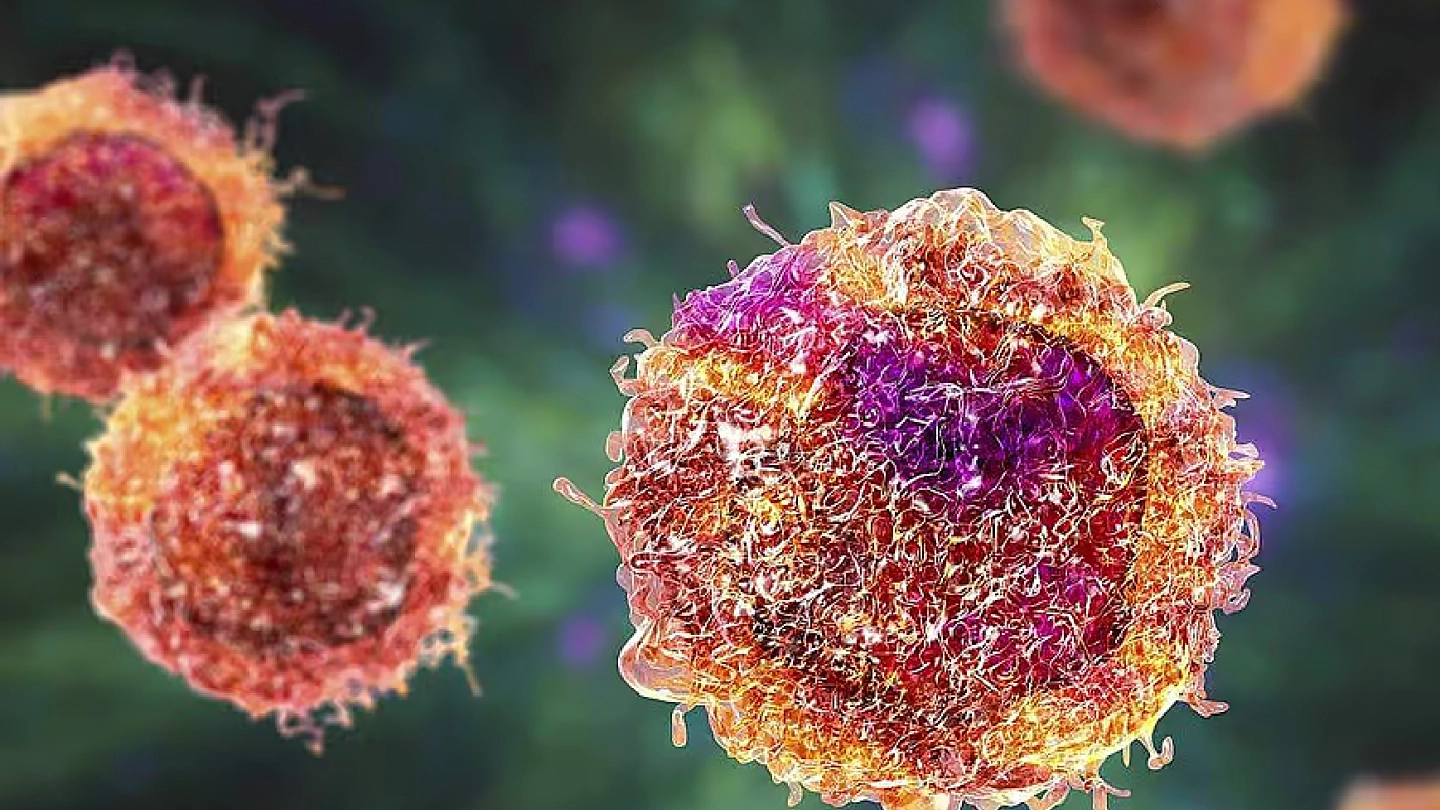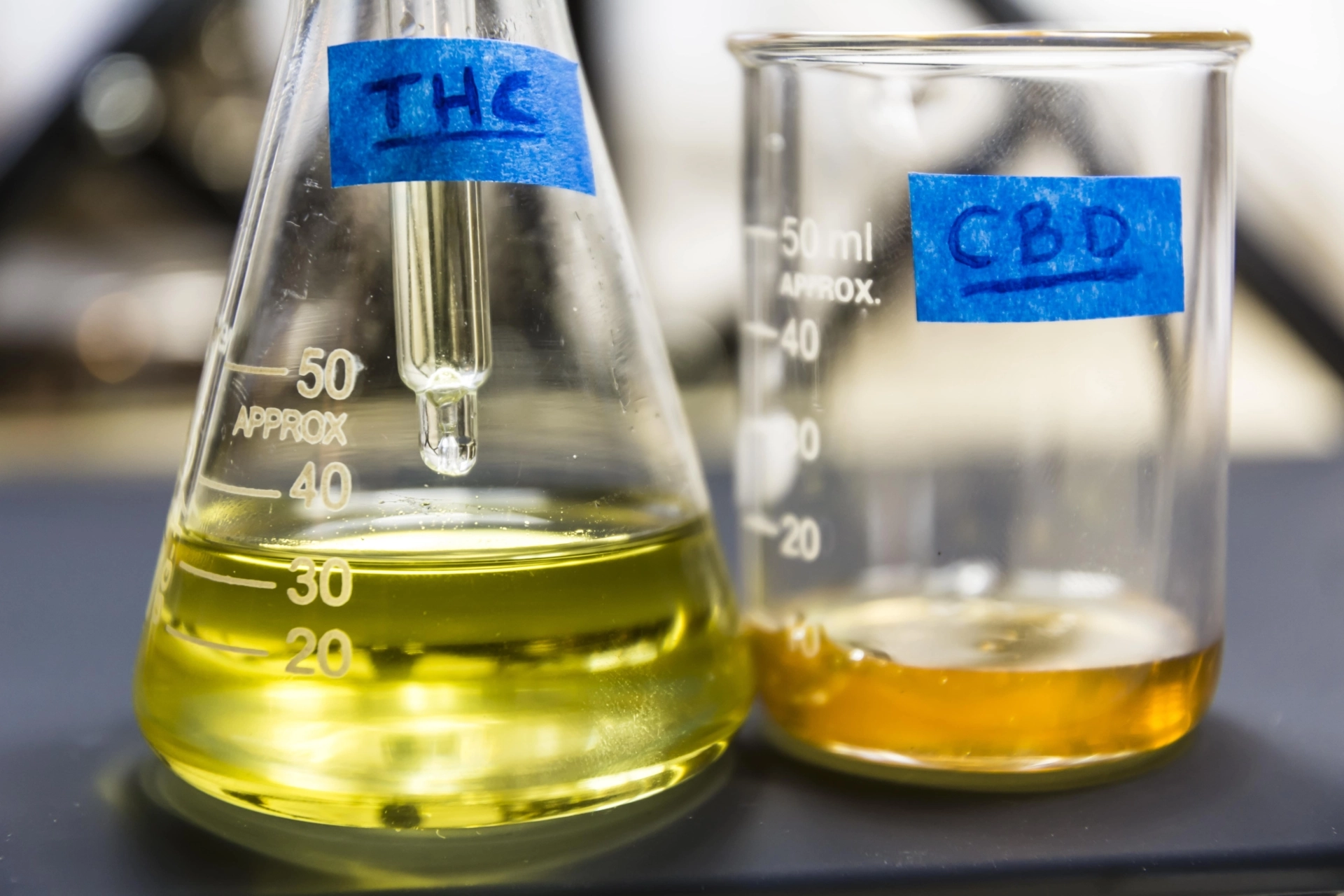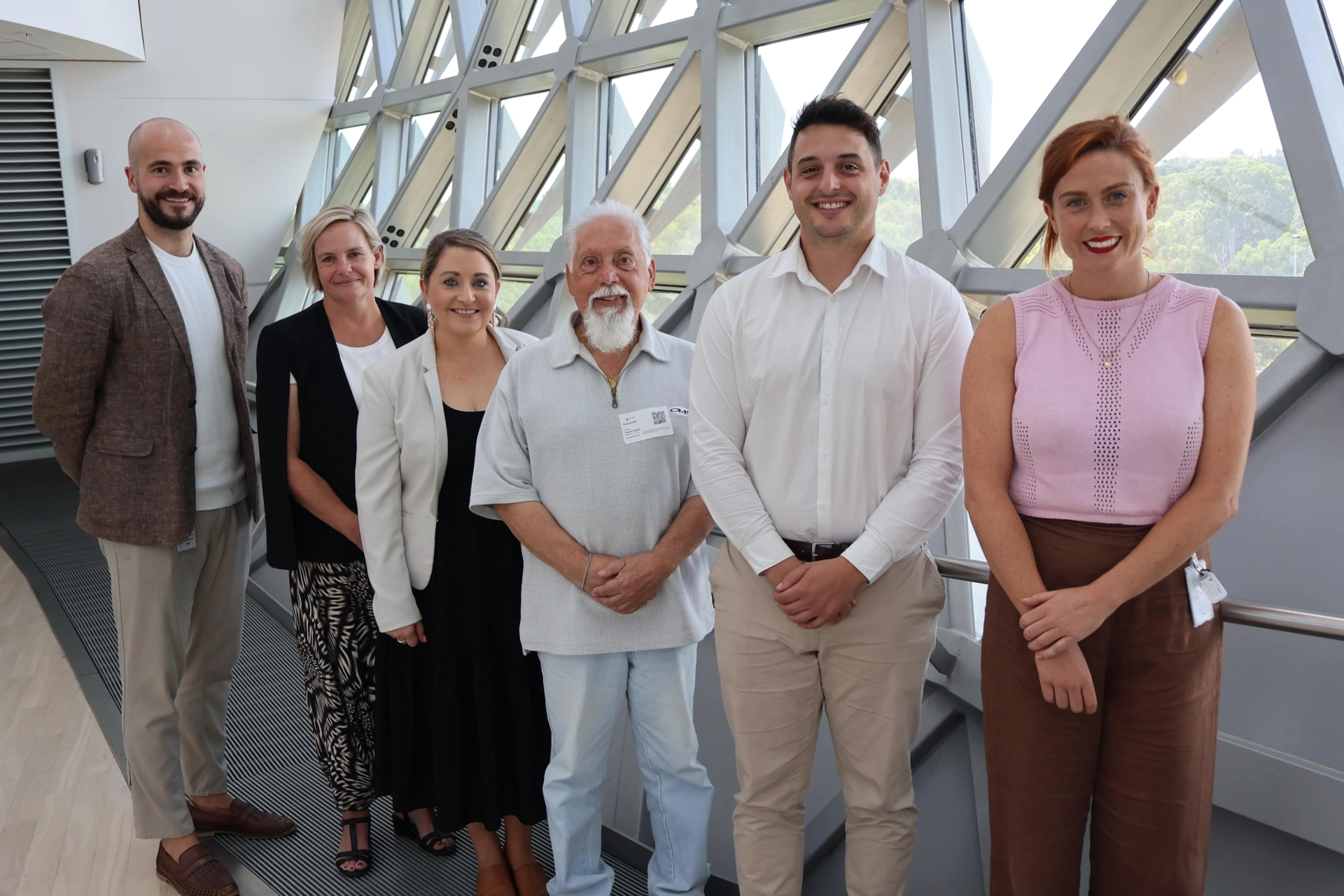Researchers from SAHMRI and the University of Adelaide are scaling up investigations into a ‘poo pill’ that could make cancer treatment far less painful and disruptive – in more ways than one.
Lead researcher A/Prof Hannah Wardill says the ‘poo pill’ is a faecal microbiota transplantation (FMT) capsule containing bacteria that’s been isolated from healthy stool samples, then processed in the laboratory.
“Many people with blood cancer need a stem cell transplant, which is an intense procedure that involves very high doses of chemotherapy,” A/Prof Wardill said.
Chemotherapy can cause serious side effects, including dramatically depleting a person’s gut microbiome – the colony of healthy bacteria that plays a key role in managing health and immunity.
“It’s a vicious cycle too,” A/Prof Wardill said.
“There have been numerous studies showing that the worse the microbiome is damaged, the worse the side effects are that people experience from their chemo.”
The Supportive Oncology Group that A/Prof Wardill leads is aiming to reduce the severity of chemotherapy side effects by replenishing a patient’s microbiome with healthy bacteria, and doing so in a simpler, and less invasive, way than current practice.
“Faecal microbiota transplants are not new, and we know they are excellent at delivering a healthy microbiome,” A/Prof Wardill said.
“However, typically, FMT is delivered via colonoscopy or enema over 3 consecutive days. This makes it very burdensome, especially for people with cancer.”
Brett Klau is a 58-year-old from Port Lincoln who was diagnosed with multiple myeloma in January and needed a stem cell transplant.
He was one of five participants who took part in the SAHMRI research team’s pilot study of the pill alternative to the triple enema, which is manufactured by BiomeBank.
He concedes the contents of the pill initially raised an eyebrow, but says the choice was easy in the end.
“Swallowing a few pills each, or three trips to hospital for an enema? I know which I’d rather!” Brett said.
A/Prof Wardill too is used to people raising eyebrows when she talks about her research.
“The pills are made from poo, but they’re not actually poo,” she said.
“There’s no smell. There’s no taste.
“What we do is take donations from healthy volunteers who are rigorously screened to ensure the donation is safe for FMT production. The stool is mixed with saline and filtered, before being dried, frozen and crushed into a powder. The powder is put in the capsule which only delivers the bacteria when they reach the patient’s intestine.”
A/Prof Wardill’s team was encouraged by results from the pilot study, and is now seeking 50 volunteers to participate in the next phase of the trial.
“We’re looking for people with myeloma or lymphoma who are scheduled to receive an autologous stem cell transplant at the Royal Adelaide Hospital,” she said.
“We’ll provide them with two courses of the FMT capsules – one to take across the seven days before their transplant and the other to take for two weeks afterwards.”
Brett continues to manage his cancer but is now feeling “pretty much 100% normal”.
“I’m extremely grateful that I was able to be part of this study, particularly living so far from Adelaide which would have made trips to hospital for an enema even more difficult,” he said.
Find out more about the HSCT-Biome Study, including eligibility criteria, here.
This story was featured by 7NEWS Adelaide.
